School News Australia | Howqua: A year of transformation
Featured in School News Australia recently – our Howqua program, and its profound impact on students, staff and families, was brought to life.
The following is an excerpt from the article, and Lauriston thanks the following staff for their time and contributions: Ms Susan Just, Mr David Joyce, Mr Tom Watson, Mrs Jamie Watson, Ms Caroline Hodges, Ms Eleanor Richards and Mr Joel Irons; along with students Daisy and Jacquie.
Journalist Shannon Meyerkort outlines: “leaving the school campus to learn in a remote location sounds like a daunting prospect, but has proved transformative for the Year 9 cohort.”
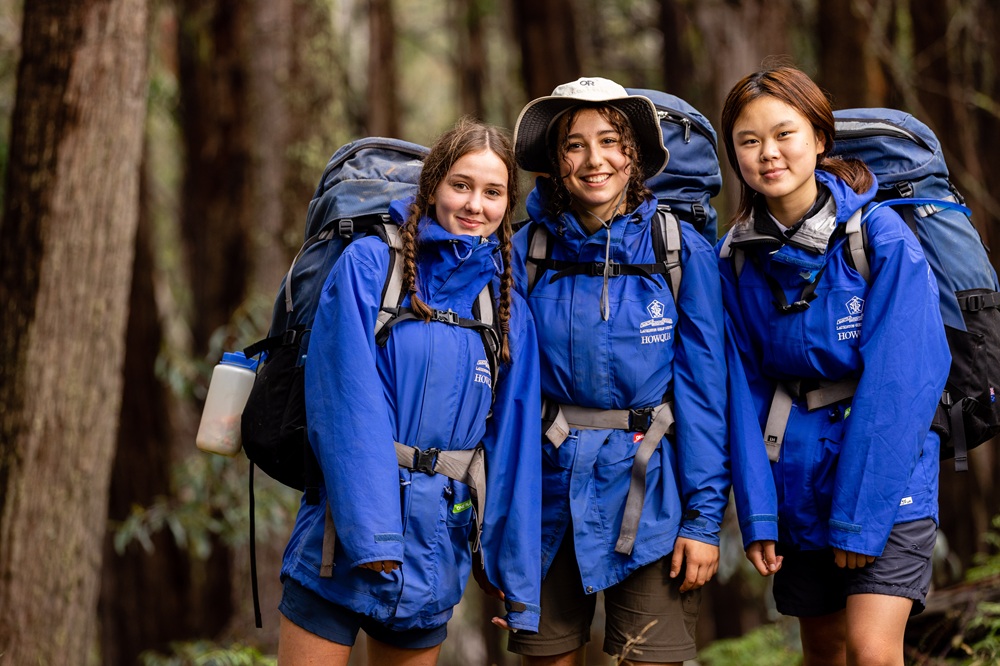
Howqua Valley in the Australian Alps is home to a special campus, a place where staff and students live alongside each other, but it’s not a boarding school. Skills like teamwork, lateral thinking and problem-solving are taught, yet it’s not an elite management programme. Students engage in cross-country runs, downhill skiing, rogaining and mountain biking, but it’s not a fitness camp.
The Howqua Programme at Lauriston Girls’ School offers a distinct and life-changing experience. Every year, the entire Year 9 cohort of around 100 students move to this separate campus in the heart of the Victorian high country for an academic year.
Left: Howqua students Lucy, Mary and Vicky hiking Mt Stirling during Howqua’s Outdoor Program (OP), one of the many options during the two-day experiential rotations that occur every week during the term.
A Vision realised
“The girls spend five-week blocks of time on our Howqua campus before heading home for short breaks and scheduled school vacations,” explains Lauriston Principal, Susan Just.
Developed in the early 1990s under then-Principal Ruth Tidemann, the programme found its home on land three hours from Lauriston’s main Armadale campus and 30 minutes from the town of Mansfield. While students come and go each year, more than 20 teachers and support staff call the alpine campus home. This environment fosters deep, meaningful connections.
“They are empowered to develop resilience, build character and enhance connection to themselves, their peers and the world around them.
“Our curriculum and co-curricular programs are designed to provide students with real-world experiences by continuing their formal academic and co-curricular learning not just inside classrooms, but in hands-on learning experiences that take them to unique locations in Victoria, around Australia and internationally too.”
A community like no other
They continue on, “Our children play a big part in this community too. They love visiting the student houses, joining in on card games, playing sports, or even indulging in fun activities like getting their nails painted by the students.”
The Howqua staff—a diverse team that includes educators, chefs, ground staff, and a psychologist—works collaboratively to support the students. Caroline Hodges is the Howqua Student Welfare Coordinator and Health and Science Teacher.
“As a staff member we are witness to the significant growth and development of the students in our care. From their academic growth to their social and emotional growth and increased independence and resilience, we see the complete growth in a young person over the course of the year.” Hodges has been a staff member at Howqua for eight years. “The support provided by staff, of each other, is extraordinary. Being a small group of educators, strong and collaborative relationships are built between each other, a group of like-minded staff whose focus is undoubtedly our students.”

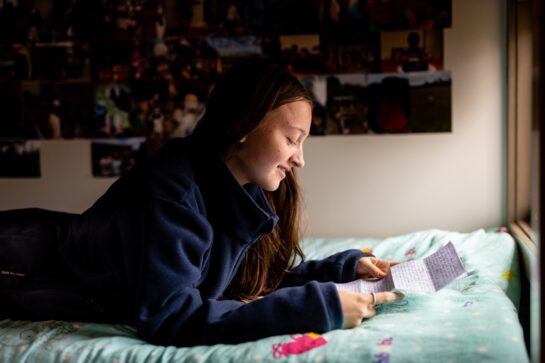
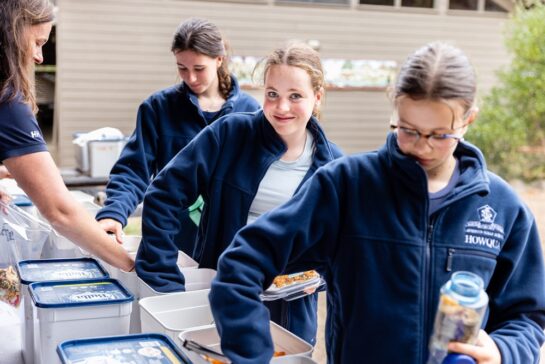
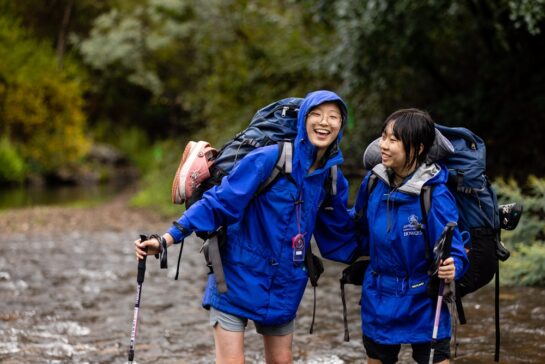
Disconnecting to connect
One of Howqua’s defining features is its remote location and emphasis on outdoor activities. Students build skills in hiking, camping, mountain biking, snow sports, and rock climbing, all while embracing sustainable practices on the bush property which has been awarded five stars for sustainability. Additionally, students actively contribute to the campus’s upkeep through daily responsibilities, reinforcing accountability and teamwork.
“Being surrounded by the natural environment, our students learn about the value of sustainable practices and the important role they play as stewards of the environment,” says Just.
Limiting access to technology is a vital component of the programme. Students use iPads for research projects or online learning activities during class, but they do not have free access to the internet or social media outside of the classroom. They are encouraged to write letters home to their family rather than depend on email.
For many students, this shift is liberating.
“Spending time away from the urban lifestyle allowed me to realise how much I relied upon and defaulted to technology,” says Daisy, who completed Howqua in 2023. “I was blind to the fact that looking at my phone before going to sleep at night and scrolling on social media platforms was drawing me away from the person I strive to be.
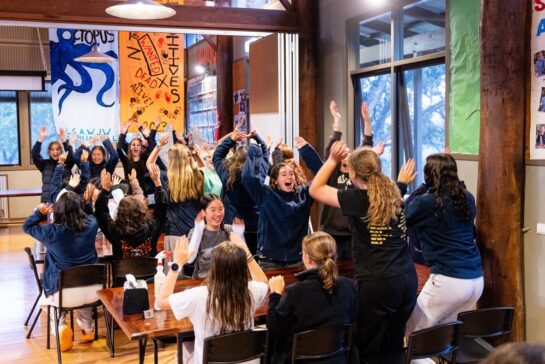
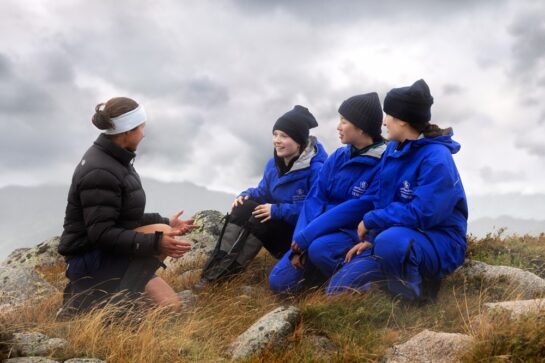

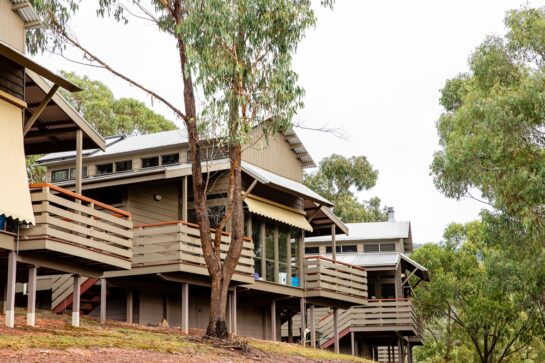
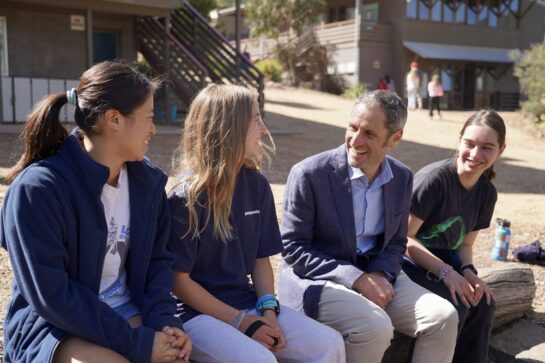
Beyond the curriculum
Students pursue a full Year 9 curriculum, including core subjects like English, Mathematics, Science, History, and Geography, alongside Art, Music, Drama, and Physical Education. Extension Mathematics and learning support are also available for those with specific needs.
The academic programme is enhanced by the natural environment of the campus. “What makes our curriculum different is the fact that we can use our natural environment for some aspects of the Science curriculum, and also travel to regional areas with historical importance,” explains Principal Just. “Through the Outdoor Programme our students can enhance their learning in Geography, Science and Art. Being surrounded by the natural environment, our students learn about the value of sustainable practices and the important role they play as stewards of the environment.”
“The students also spend time in the town of Mansfield and identify the benefits and challenges of rural living and the large impact that small alterations to climate, politics and the economy can have on the people and businesses in the area,” says Eleanor Richards.
A lasting impact
The transition back to Lauriston’s main campus can be daunting after such a transformative year. However, careful planning ensures returning students integrate smoothly into senior schooling.
Year 10 Coordinator Joel Irons, outlines, “It’s a level of awareness rarely seen in teenagers, and so too are the soft skills the girls develop over their year at Howqua: collaboration, self-awareness, resilience, voice and empathy. “These are key to self-actuation and qualities that make exceptional leaders in today’s ever-changing world.”
“Through the Howqua programme, I learned that adaptability is crucial to navigating challenges and making the most of new experiences,” says Year 11 student, Jacquie. “Over the year, students faced situations such as unexpected weather, physical challenges, and changes in routine, all of which required quick thinking and resilience. Developing adaptability not only helped me tackle these challenges but also strengthened my relationships. By understanding others’ perspectives and working together to find solutions, we created a more connected and supportive environment.”
SHARE THIS ON
